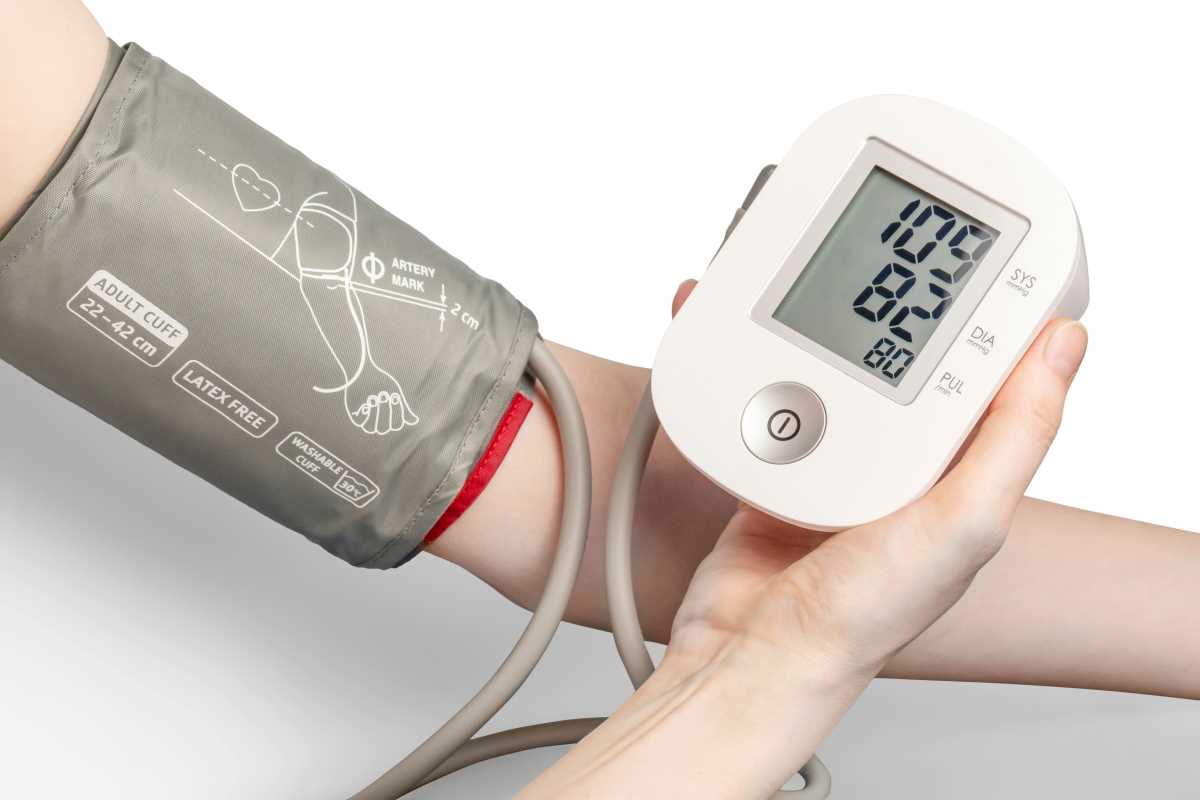For millions of Americans in their 40s and 50s, that morning cup of coffee represents more than just a wake-up ritual—it's an essential part of daily life. If you're like most adults in this age group, you've probably wondered whether your coffee habit is helping or hurting your heart health. Recent research has provided fascinating insights that challenge long-held assumptions about coffee and cardiovascular wellness, offering both reassuring news and important considerations for your heart health journey.
The relationship between coffee and heart conditions has evolved dramatically in scientific understanding over the past decade. Where once coffee was viewed with suspicion by healthcare providers, emerging evidence suggests that moderate coffee consumption may actually provide cardiovascular benefits for many people. However, the story isn't simple—your individual response to coffee depends on factors including your genetics, how you prepare your coffee, and your overall health profile.
Understanding these nuances becomes particularly important as you navigate middle age, when heart health concerns naturally become more prominent and when making informed lifestyle choices can significantly impact your long-term wellness.
The Science Behind Coffee's Heart Effects
Recent large-scale studies have revolutionized our understanding of coffee's impact on cardiovascular health. The Framingham Heart Study, which followed participants for decades, found that people who consumed 3-4 cups of coffee daily had a 19% lower risk of cardiovascular disease compared to non-coffee drinkers.
Cardiovascular Disease Prevention
A comprehensive analysis published in the European Journal of Preventive Cardiology examined data from over 400,000 participants and discovered that coffee consumption was associated with reduced risks of heart failure, coronary artery disease, and stroke. The optimal benefit appeared at 2-3 cups per day, with the protective effect tapering off at higher consumption levels.
These findings align with research from the American Heart Association, which found that coffee drinkers had lower rates of heart failure hospitalization and stroke occurrence. The mechanisms behind these benefits involve coffee's complex blend of bioactive compounds that work together to support cardiovascular function.
Antioxidant Powerhouse
Coffee contains over 1,000 bioactive compounds, with chlorogenic acids serving as particularly potent antioxidants. These compounds help reduce inflammation throughout your cardiovascular system and may prevent the oxidation of LDL cholesterol—a key factor in atherosclerosis development.
The antioxidant content in coffee often exceeds that found in many fruits and vegetables, making it one of the largest sources of antioxidants in the typical American diet. This antioxidant capacity helps protect your blood vessels from damage and supports healthy circulation.
Caffeine: The Double-Edged Compound
Caffeine's effects on heart health present a complex picture that varies significantly among individuals. Understanding how your body processes caffeine can help you optimize your coffee consumption for heart health benefits.
Blood Pressure Considerations
Caffeine can cause temporary increases in blood pressure, typically ranging from 3-15 mmHg for systolic pressure. However, regular coffee drinkers often develop tolerance to these effects. Research shows that people who consume coffee regularly may experience smaller blood pressure increases compared to occasional drinkers.
If you already have high blood pressure, this temporary elevation deserves attention. Studies suggest that the acute blood pressure effects of caffeine are most pronounced in people who don't regularly consume coffee and those with existing hypertension.
Heart Rhythm Effects
Contrary to popular belief, moderate coffee consumption doesn't appear to increase the risk of dangerous heart rhythm abnormalities in most people. The landmark Cardiovascular Health Study found no association between coffee intake and atrial fibrillation—the most common serious arrhythmia—in over 5,000 participants followed for decades.
However, individual sensitivity varies significantly. Some people experience palpitations or rapid heartbeat with even small amounts of caffeine, while others can consume several cups without noticeable effects on heart rhythm.
Genetic Factors in Coffee Metabolism
Your genetic makeup plays a crucial role in determining how coffee affects your heart health. Understanding these individual differences can help you make more personalized decisions about coffee consumption.
CYP1A2 Gene Variations
The CYP1A2 gene controls how quickly your body metabolizes caffeine. People with certain variations of this gene—called "slow metabolizers"—process caffeine much more slowly than "fast metabolizers." This difference significantly impacts how coffee affects your cardiovascular system.
Fast metabolizers clear caffeine from their systems within 2-4 hours and generally experience more cardiovascular benefits from coffee consumption. Slow metabolizers may retain caffeine for 6-8 hours and could be more susceptible to negative effects like increased blood pressure or sleep disruption.
If you find that coffee consumed after 2 PM still affects your sleep, or if you experience jittery feelings from relatively small amounts of coffee, you may be a slow metabolizer. These individuals often benefit from limiting coffee intake to earlier in the day and consuming smaller amounts.
Coffee Preparation Methods Matter
How you prepare your coffee significantly influences its impact on heart health. Different brewing methods extract varying amounts of beneficial compounds and potentially harmful substances.
Filtered vs. Unfiltered Coffee
Research consistently shows that filtered coffee provides better cardiovascular outcomes than unfiltered varieties. Paper filters remove cafestol and kahweol—compounds found in coffee oils that can raise LDL cholesterol levels.
French press, Turkish coffee, and espresso contain higher levels of these cholesterol-raising compounds because they don't use paper filters. If you prefer these brewing methods, consider limiting consumption or alternating with filtered coffee to minimize potential negative effects on your cholesterol profile.
Temperature and Extraction Time
Cold brew coffee has gained popularity partly due to its lower acidity, which may benefit people with sensitive stomachs. However, the extended extraction time can result in higher caffeine content—sometimes 1.5-2 times that of hot-brewed coffee. This increased caffeine concentration could amplify both positive and negative cardiovascular effects.
Espresso, while containing less total caffeine per serving due to smaller portion sizes, delivers a concentrated dose that may cause more pronounced acute effects on blood pressure and heart rate.
Individual Tolerance and Health Conditions
Your current health status significantly influences how coffee affects your cardiovascular system. Several conditions require special consideration when determining your optimal coffee consumption.
Existing Heart Conditions
If you have diagnosed heart disease, heart failure, or serious arrhythmias, your response to coffee may differ from healthy individuals. Some people with heart failure actually benefit from moderate coffee consumption due to its mild diuretic effects and potential improvement in cardiac function.
However, those with certain arrhythmias or severe coronary artery disease should work closely with their healthcare providers to determine appropriate coffee limits. The stimulant effects of caffeine could potentially worsen some heart rhythm disorders or increase the workload on a compromised heart.
Medication Interactions
Coffee can interact with various heart medications, affecting their absorption and effectiveness. Blood thinners like warfarin may have altered effects when combined with large amounts of coffee. Some blood pressure medications work less effectively in the presence of high caffeine intake.
Beta-blockers, commonly prescribed for heart conditions and high blood pressure, may reduce your tolerance for caffeine by blocking some of its metabolic pathways. If you take heart medications, discuss your coffee consumption with your healthcare provider to ensure optimal treatment outcomes.
Age-Related Considerations for Heart Health
As you progress through your 40s and 50s, your cardiovascular system undergoes natural changes that can influence how coffee affects your heart health.
Metabolic Changes
Your metabolism naturally slows with age, which can affect how quickly you process caffeine. Many people find they become more sensitive to caffeine's effects as they get older, experiencing stronger reactions to the same amounts they previously tolerated well.
This increased sensitivity may require adjusting your coffee consumption timing and quantity. Consider switching to half-caffeine blends or limiting consumption to morning hours to avoid sleep disruption, which becomes increasingly important for heart health as you age.
Sleep Quality Impact
Quality sleep becomes more crucial for cardiovascular health during middle age. Poor sleep is strongly linked to high blood pressure, heart disease, and stroke risk. If coffee consumption interferes with your sleep quality, the negative effects on your heart health could outweigh any potential benefits.
Practical Guidelines for Heart-Healthy Coffee Consumption
Based on current research, here are evidence-based recommendations for optimizing coffee's heart health benefits while minimizing risks:
Optimal Consumption Patterns
Most research supports 2-4 cups of filtered coffee daily as the sweet spot for cardiovascular benefits. This amount provides sufficient antioxidants and bioactive compounds while staying within safe caffeine limits for most adults.
Space your coffee consumption throughout the morning and early afternoon to maintain steady levels without interfering with sleep. Avoid consuming coffee within 6 hours of bedtime, or longer if you're sensitive to caffeine's effects.
Quality and Preparation Tips
Choose high-quality, freshly ground coffee beans to maximize antioxidant content. Darker roasts contain slightly fewer antioxidants than lighter roasts but may be easier on sensitive stomachs due to lower acidity.
Use paper filters when possible to remove cholesterol-raising compounds. If you prefer espresso or French press coffee, consider alternating with filtered varieties or limiting these preparations to occasional treats rather than daily consumption.
Monitoring Your Response
Pay attention to how coffee affects your energy levels, sleep quality, and any physical symptoms like rapid heartbeat or jittery feelings. Keep a simple log for a week or two, noting your coffee intake timing and any symptoms you experience.
If you notice persistent sleep problems, anxiety, or heart palpitations, consider reducing your intake or consulting with your healthcare provider. These symptoms could indicate that your current consumption level exceeds your individual tolerance.
When to Consult Your Healthcare Provider
Several situations warrant discussing your coffee consumption with your healthcare provider:
Regular Health Checkups
Include coffee consumption in discussions during your annual physical exam, especially if you have risk factors for heart disease like high blood pressure, diabetes, or family history of cardiovascular problems.
Your doctor can help you understand how coffee fits into your overall heart health strategy, considering your individual risk factors, medications, and health goals.
Symptom Monitoring
Consult your healthcare provider if you experience new or worsening symptoms that might be related to coffee consumption, including irregular heartbeat, chest discomfort, persistent anxiety, or sleep disturbances.
Don't assume these symptoms are necessarily coffee-related, as they could indicate underlying health issues that require medical evaluation.
Work with your healthcare provider to develop a personalized approach to coffee consumption that considers your individual health status, medications, and cardiovascular risk factors. With the right balance, your daily coffee ritual can continue to be both an enjoyable part of your routine and a contributor to your long-term heart health.
Disclaimer: The content provided on SuperHealthyTips is for informational and educational purposes only. This information is not intended to be a substitute for professional medical advice, diagnosis, or treatment.







